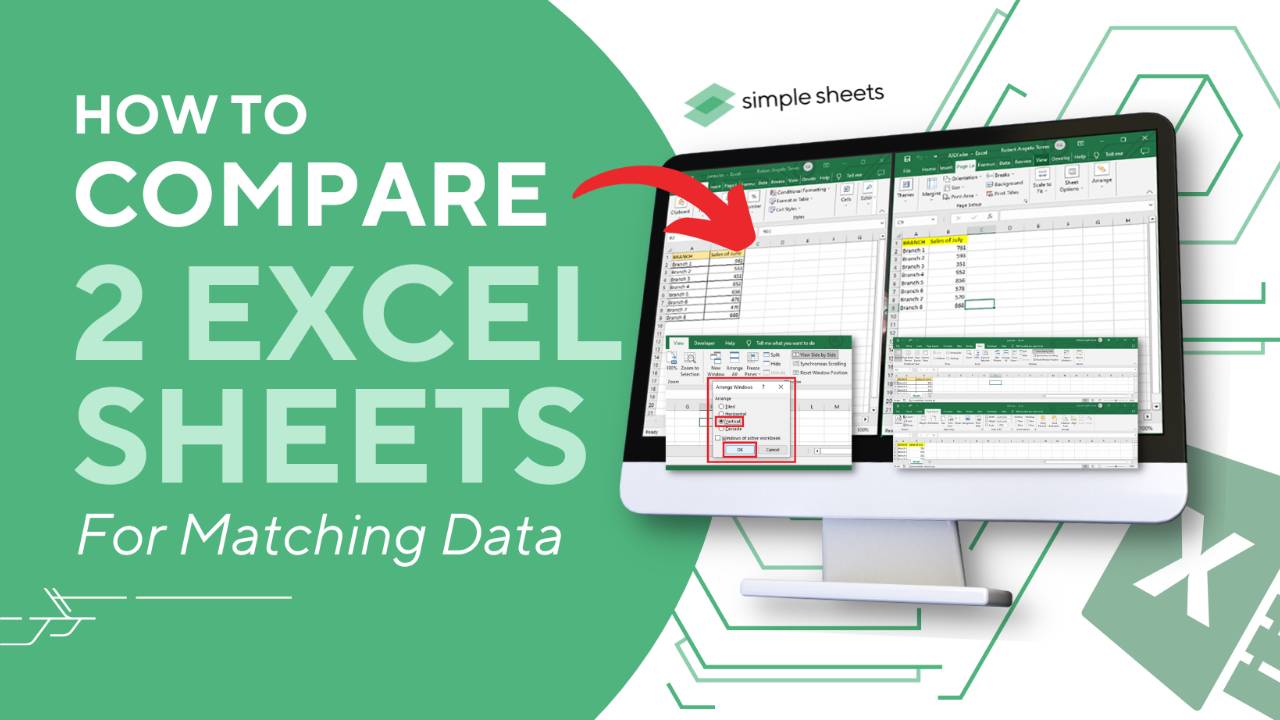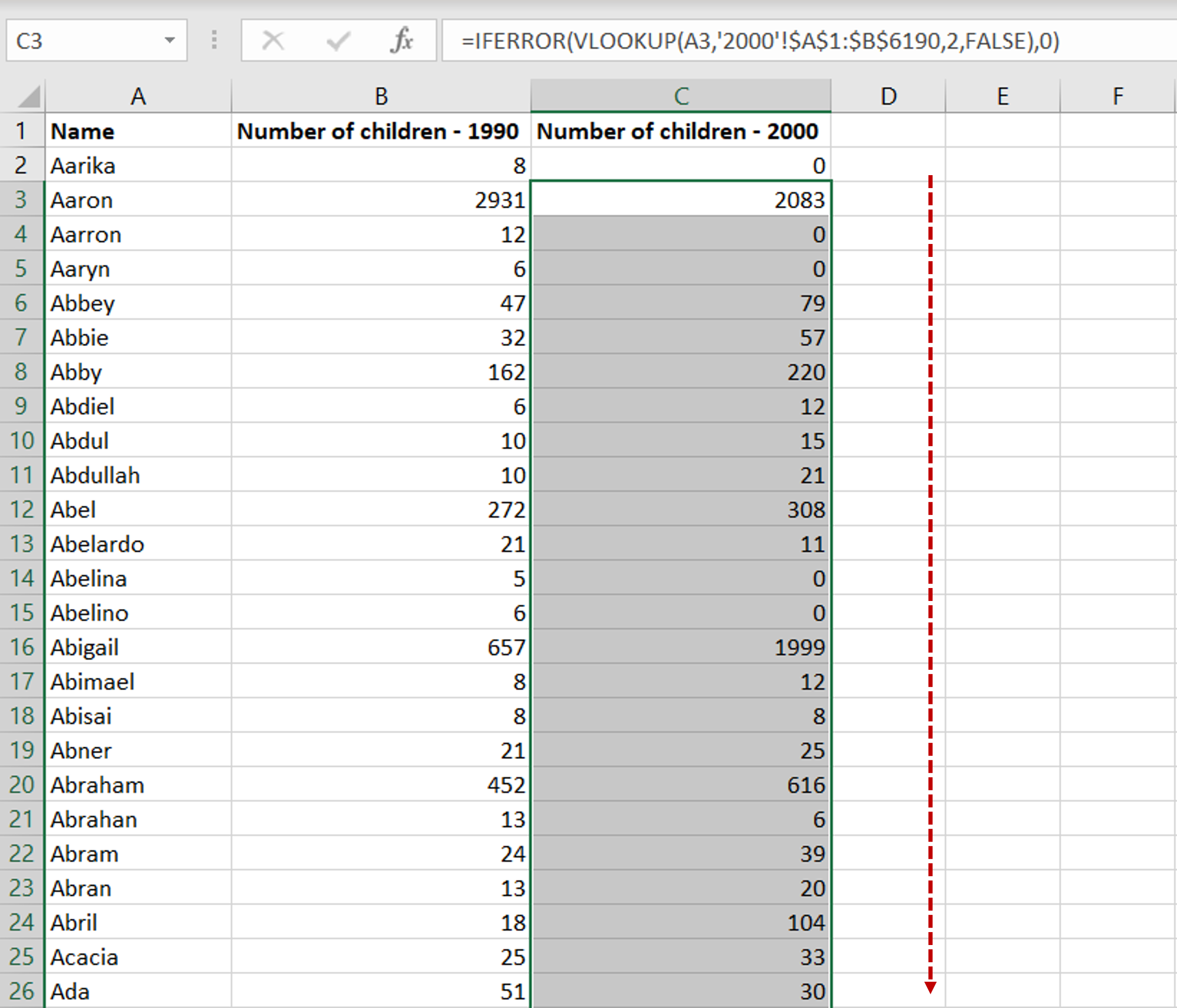5 Ways to Compare Excel Sheets with VLOOKUP

Understanding the Basics of VLOOKUP

VLOOKUP, which stands for ‘Vertical Lookup’, is an Excel function designed to find and retrieve data from a table. Before we delve into comparing sheets, it’s essential to understand how VLOOKUP works. This function requires four arguments:
- Lookup_value: The value to search for in the first column of the table array.
- Table_array: The range of cells that contains the data.
- Col_index_num: The column number in the table from which to retrieve the value.
- [Range_lookup]: An optional parameter to find either an exact or approximate match.
VLOOKUP is particularly useful when you need to find corresponding data points from different sheets or workbooks.
Comparing Sheets with VLOOKUP

Now, let’s explore five different ways to compare Excel sheets using the VLOOKUP function:
1. Find Differences Between Sheets

One of the most straightforward uses of VLOOKUP is to find differences between two sheets:
- Define your lookup value in the first sheet.
- Use VLOOKUP to search for this value in the second sheet.
- Compare the results:
=IF(ISNA(VLOOKUP(A2,Sheet2!A:B,2,FALSE)),“Not Found”,VLOOKUP(A2,Sheet2!A:B,2,FALSE))
🔍 Note: This formula will return “Not Found” if there is no match, helping to quickly identify discrepancies.
2. Compare Columns for Matching Entries

Here, you might want to check if entries in one column match those in another:
- Set up your VLOOKUP with the column you want to compare:
=VLOOKUP(A2,Sheet2!A:B,2,FALSE)
This method is excellent for reconciling data between departments or comparing lists from different sources.
3. Combining Data from Multiple Sheets

VLOOKUP can also help in aggregating data:
- Use VLOOKUP to pull data from one sheet and insert it into another:
=VLOOKUP([lookup_value],Sheet2!A:B,[col_index_num],FALSE)
This is useful when you’re pulling sales data from different regional sheets into a consolidated report.
4. Error Handling and Advanced Comparisons

When comparing sheets, you’ll often encounter errors. Here’s how VLOOKUP helps:
- Use ISNA() to wrap VLOOKUP for handling #N/A errors:
=IF(ISNA(VLOOKUP(A2,Sheet2!A:B,2,FALSE)),“Not Available”,VLOOKUP(A2,Sheet2!A:B,2,FALSE))
=IFERROR(VLOOKUP(A2,Sheet2!A:B,2,FALSE),“Error”)
These techniques make your comparisons more robust and user-friendly by catching and handling errors gracefully.
5. Automating Repetitive Comparisons

Excel macros can automate VLOOKUP comparisons:
- Write a VBA script to automate VLOOKUP operations:
Sub CompareSheets() Dim sourceWs As Worksheet Dim targetWs As Worksheet Set sourceWs = ThisWorkbook.Sheets(“Sheet1”) Set targetWs = ThisWorkbook.Sheets(“Sheet2”)' Your VLOOKUP logic here ' Loop through each row and apply VLOOKUP
End Sub
This method is ideal for repeated comparisons, like daily inventory checks or weekly sales reports, ensuring consistency and saving time.
In wrapping up our exploration of using VLOOKUP to compare Excel sheets, it’s clear that this function is indispensable for data management. VLOOKUP’s versatility allows for identifying differences, merging information, and automating repetitive tasks, making it a fundamental tool for anyone working with Excel. The key takeaways include the importance of understanding VLOOKUP’s syntax, using error handling to manage discrepancies, and leveraging automation for efficiency. These techniques enhance data analysis, leading to better decision-making and streamlined workflows in any business environment.
How do I use VLOOKUP to find values that don’t exist in another sheet?

+
Use VLOOKUP with ISNA() or IFERROR() to return ‘Not Found’ or a custom message when a value isn’t found, effectively identifying what’s missing in one sheet compared to another.
Can VLOOKUP compare entire rows between sheets?

+
VLOOKUP can only compare or retrieve values from a single column. For comparing entire rows, consider using a combination of HLOOKUP or the more advanced INDEX and MATCH functions.
Is there an alternative to VLOOKUP for comparing sheets?

+
Yes, alternatives include using INDEX with MATCH, which can look both vertically and horizontally. Additionally, Excel’s Power Query tool can merge and compare data from multiple sheets efficiently.



